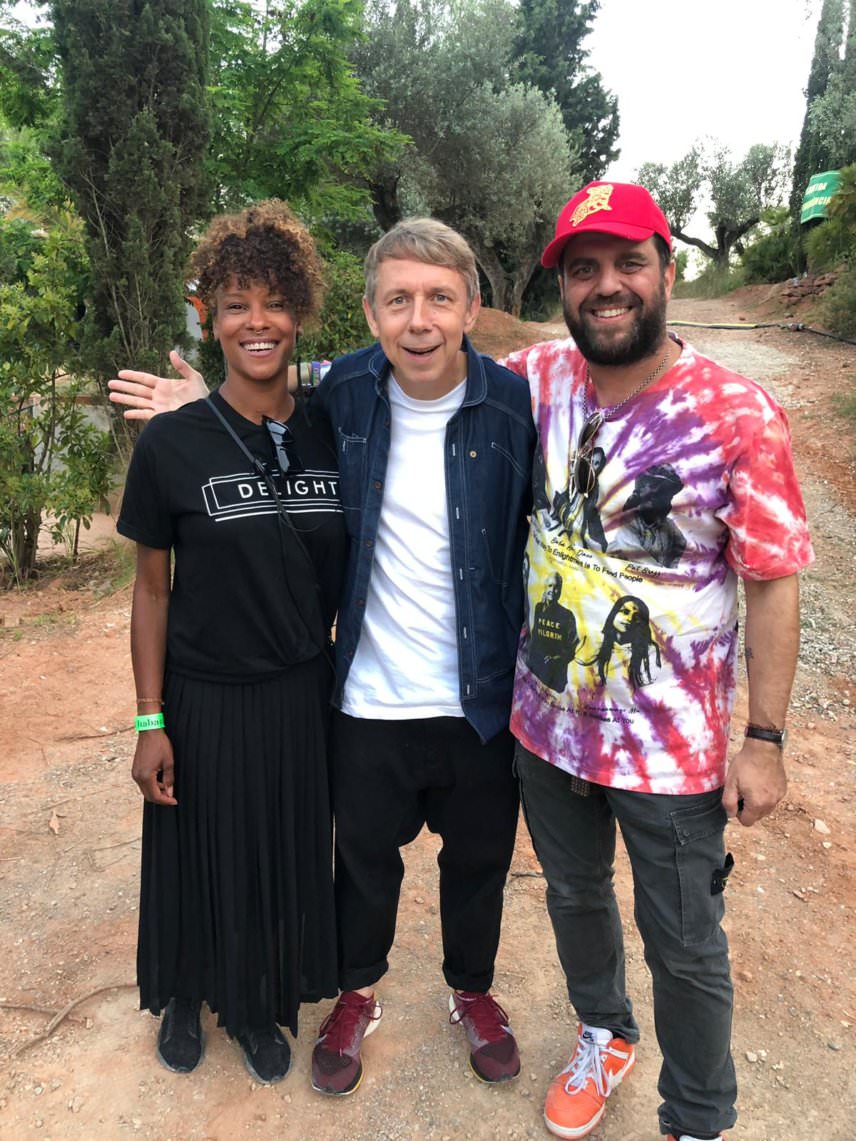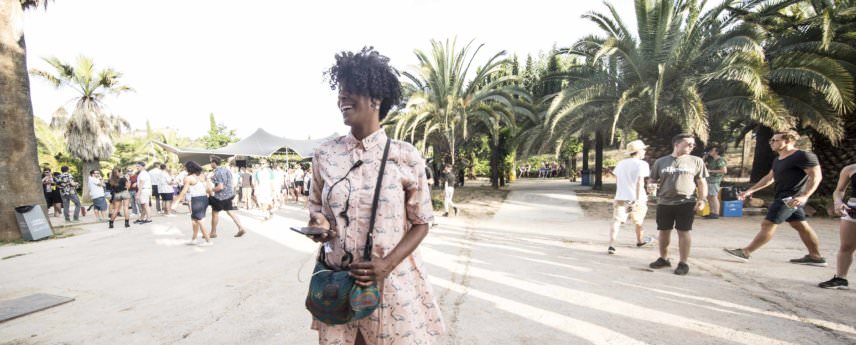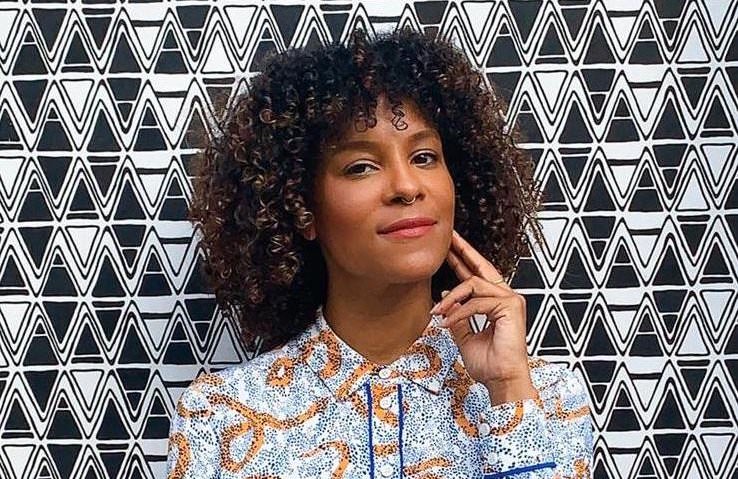In the first of this month’s The Business Of Music features, we speak with the head of De Light Artist Management Lindi Delight, who has just launched ‘Masks For Music’, an initiative to generate revenue for artists and musicians during the pandemic.
Lindi Delight has been working in the music industry for around 15 years, beginning her career throwing deep house parties in Toronto. She moved to Dubai and continued promoting, putting on the likes of Jamie Jones, Carl Craig, Chris Coco, Jazzie B and Norman Jay. Lindi moved to Berlin in 2011 to work for Chris Liebing and manage his CLR label night globally. In 2015 she began working for Lee Burridge’s All Day I Dream brand and in the first year brought it from a six event a year event showcase to sixteen. She started her own 360 in-house artist and event management agency De Light Management at the end of 2016 representing artists such as Öona Dahl, Hybrasil and Raven and managing showcases for Life and Death and Rekids events globally.
Lindi has recently launched her ‘Masks For Music‘ initiative, a way to provide much-needed revenue for the music industry during the pandemic. Attack spoke with Lindi about the realities of running a business in the music industry, and about why she started ‘Masks For Music’.

Attack Magazine: Thank you for your time today; so we know what a management agency does on paper, but can you expand a little on what the role involves?
Lindi Delight: So my role frees artists up to be creative, and to bounce ideas around about how we can do something new, exciting or innovative. I also help them manage their time and projects, work out what should be a priority, what we should hold off on and so on.”
So going back to when you first started your agency, how did you initially fund your business?
I funded it through my own work. I didn’t have any grants, I didn’t have any assistance, it really was just me sending quotes to potential clients and organising that revenue into managing the tasks of my team. I’m completely self-made and self-financed.
We know firsthand that the assistance for people in the culture sector is very, very limited and that anyone that had anything to do with live events will be the last to start working consistently again…
And when you were starting out, were there any specific music business resources that were helpful?
To be honest, I learned by doing. I basically taught myself everything as I went. Of course I made mistakes along the way, so it was trial and error. But I learned on the job, and through many different positions in the industry. This is why I started a 360 degree management agency, and my experience encompasses various roles.
So what kind of mistakes are we talking about?
Well everything is trial and error. I think sometimes I undervalued my work and maybe charged less than I should have. I think valuing your work and knowing how much to charge people is a challenge, one I’m still learning; it’s a challenge to find a way to monetise your experience and time.
How do you know what to charge?
I put a value on my hours and then also put a time on the project. So I say ‘this is how much time it’s going to take and I’m going to charge this much, but if I go over this then I’ll have to charge for it’. Once you’re laying out the project you’re basically allocating time to each task – this is how much time I’m putting in, this is how much I’m worth per hour, this is how much this project is worth.
Has your business changed much since you started?
It’s changed in the way that I’ve been able to bring onboard more people so we have more services we can provide and it just makes us more diverse as a company.
So how do you go about improving or streamlining your business?
I’ve been reading this book called Principles by Ray Dalio which has helped me start to define what my processes are. So when you’re completing something you write down all the steps you’re going to need to take to complete it, so that you’re aware of the tasks. Also if you need someone else to take over the task if you’re away, they’re able to easily. The other side is trying to define what my decision-making processes are – so writing down the steps why I made a decision makes it more clear to me why I made a decision – so I’m trying to figure out exactly why, not to get people stuck in processes but have people more aware of the what the processes are.
Presumably, there’s a lot of planning involved in your role; how far ahead do you need to plan?
It depends on the project. If you’re doing a large scale event (4000+ people) then you’re planning about a year in advance, making sure the artist and venue are available of course and just planning the timeline. But if it’s for say a 300 person event at a night club that you’re doing a residency at of course the timing is less as you’re already in a flow. I would say something like that takes maybe two months but of course the bookings need to be prepared before that as well.
How do you manage your personal and social relationships and commitments in a role that requires so much travel?
Yeh! It took me a while to find the balance. … I have to travel a lot with every artist and brand I work with and it is difficult to maintain relationships. I think it’s important to have friends that are understanding of your lifestyle and not take it personally when you’re not able to take the time. I’m lucky that I love what I do, so even if I am travelling, when I come home I’m usually the first person in the office on Monday morning even if I’ve been travelling all weekend.
Finding the balance, it’s a work in progress. I try on the weekend to completely shut off, not work, not answer work emails but it’s definitely a balance that I have to be aware of. But I do love what I do so it doesn’t feel like I’m working all the time.
So moving to the kind of people that you work with, do you think that musicians and DJs often shy away from learning about the details of running their business?
In my opinion, there are some people that have more technical minds and some that have more of a creative mind. I think sometimes that the more creative people, their minds might shut off when it comes to learning about the business skills or the organisational side because they’re creative, they don’t want to be tied down. For me for example, I’m creative when it comes to creating concepts but I don’t know if I’d be able to have a completely creative job as I’m a technical person. I think that’s why sometimes an artist management team can be great as you balance each other out.
Masks For Music
Lindi also recently launched her ‘Masks For Music’ initiative, a campaign that aims to allow musicians and artists to generate revenue during the pandemic. It’s an affiliate system where anyone working in the music industry can create an account, generate a link and begin selling facemasks, for which they’ll receive 50% of the purchase price of every mask they sell.
How did ‘Masks For Music’ come about?
One of our clients was a festival which we were supposed to be expanding around the world this year. After covid hit those plans changed, but we still wanted to work together. We brainstormed how we could take revenue that’s already out there, that’s already being spent on something that is necessary, and funnel that revenue into the music industry. We came up with Masks for Music and became partners in the initiative.
What was the thinking behind it?
We know firsthand that the assistance for people in the culture sector is very, very limited and that anyone that had anything to do with live events will be the last to start working consistently again. And we would like to help people who are in our situation. So that was how ‘Masks for Music’ was born. To be able to provide artists and music professionals with an alternate solution to generate revenue during covid.
And what kind of response has the campaign had so far?
So far the response has been positive across the board. Artists who are supporting include Simina Grigoriu, Amine K, BEC, Öona Dahl, Alinka and Shaun J Wright. Promoters include Novel – Australia and we have support from venues like Caos, Brazil and The Arch in Brighton and from industry events like Brighton Music Conference and the Alberta Electronic Music Conference . We’ve been endorsed by the Association for Electronic Music, Resident Advisor is one of our affiliate partners, Faze magazine, too so it’s amazing to be able to provide assistance for people around the world but it’s also made us really grateful for the fact that our peers are accepting the initiative – it’s a nice stamp of approval that we are on the right path.

Lindi Delight’s Three Top Tips For Business Success
1. Organisation
I think the biggest thing is to be organised; to make sure that you’re not starting any project without laying out the timeline and goals, making sure that everybody’s expectations are noted and that everyone knows what the expectations are and how you can deliver them. For me, I use Asana as a task and project management software and I outline every single detail of an event and ensure that we’re keeping on track with the timing.
2. Contracts
The second thing is making sure you have contracts signed straight away and not commencing too much work before you have a signed contract… Even when you think you can really trust the person and the situation, you need to sign a contract to preserve that trust and the relationship. I have learned that the hard way a couple of times, and taking the extra days/weeks to get contracts signed is worth the wait to start the work.
3. Learning
Learning, learning, learning! Read, listen to podcasts, even ones that might not be for your business; I try my best to learn and stay on top, to find out how successful people become successful, trying to adopt good habits. Like a really strong morning routine, for example, to make sure I have enough time to get everything done like meditation, working out, setting goals, visualising my day etc. Learning!
Find out about Masks For Music at their website, Facebook or Instagram.

